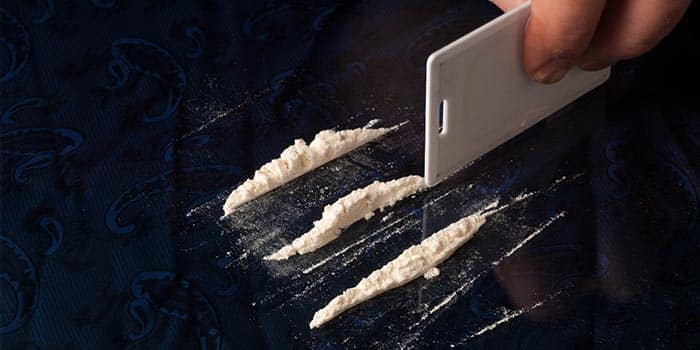
Trainer’s License Revoked for Drugging Horse with Cocaine
A professional horse trainer in Nevada, Alvaro Torres, recently had his license revoked for five years by state regulators after it was discovered that he had been drugging his horses to enhance their performance. This shocking revelation came to light after a routine drug test done on one of Torres’ horses, The Saime Pro, which had just won the second race of the Elko Country Fair.
Traces of Cocaine Found in Horse’s Urine
Following the victory, The Saime Pro was subjected to a drug test where authorities found traces of cocaine in its urine. This discovery led to the redistribution of the $7,000 prize money that the horse had initially won. Additionally, Torres was penalized with a $1,000 fine and had his license suspended for 180 days, which was the maximum penalty that the state racing steward, Doug Ray, could impose.
Despite the severity of the initial penalty, both Ray and the Nevada Gaming Control Board (NGCB) deemed it insufficient given the gravity of the offense committed by Torres.
NGCB Proposes Harsher Penalty
NGCB recently proposed a $5,000 fine and a five-year license revocation for Torres, marking the first time a horseracing steward has ever advocated for a more severe penalty in over three decades. George Assad, a member of the NGCB, condemned Torres’ actions as “outrageous” and expressed his disbelief at the risk Torres had taken by drugging a horse with cocaine.
George Assad: “That’s just unacceptable. I have no tolerance for people who abuse animals like that.”
Chair Kirk Hendrick also raised concerns about how Torres managed to obtain cocaine for the horse, hinting at the need for further investigation into the matter.
License Revocation Confirmed
Following a meeting held by the Nevada Gaming Commission, a unanimous 4-0 vote was cast in favor of imposing the penalty recommended by NGCB. As a result, Torres is prohibited from participating in any races under the Nevada Gaming Control Board’s jurisdiction.
Despite the decision, Torres did not attend the meeting and declined to provide any comments on the issue.
Overall, the incident has sparked outrage in the horseracing community, with many calling for stricter regulations to prevent similar occurrences in the future.
การพ้นประกาศจำหน่ายใบอนุญาตของผู้ฝึกม้าเพราะใส่ยาคอคีน
นายอัลวาโร เตอร์เรส ผู้ฝึกม้าอาชีพในรัฐเนวาดา ได้ถูกลงโทษให้พ้นประกาศจำหน่ายใบอนุญาตเป็นเวลา 5 ปีจากหน่วยงานตรวจสอบของรัฐหลังจากค้นพบว่าเขาใส่ยาให้ม้าเพื่อเพิ่มประสิทธิภาพของม้าเหล่านั้น ข้อความนี้เป็นการเปิดเผยความน่าตกใจหลังจากทดสอบยาเสพติดบนม้าของเตอร์เรส ชื่อเรา Saime Pro ซึ่งเพิ่งชนะการแข่งขันครั้งที่สองในงาน Elko Country Fair
พบสารคอคีนในปัสสาวะของม้า
หลังจากชนะเลิศ เรา Saime Pro ถูกตรวจสอบเรื่องยาที่ทำให้พบสารคอคีนในปัสสาวะของม้า การค้นพบนี้ทำให้เงินรางวัล $7,000 ที่ม้าชนะได้รับต้องถูกแจกแจงใหม่ นอกจากนี้ เตอร์เรสถูกลงโทษด้วยค่าปรับ $1,000 และได้ใบอนุญาตถูกระงับเป็นเวลา 180 วัน ซึ่งเป็นโทษสูงสุดที่ผู้ควบคุมการแข่งขันที่รัฐได้ใช้
แม้จะมีความรุนแรงของโทษตั้งต้น แต่ทั้งคุณ Doug Ray และ คณะกรรมการควบคุมเกมเนวาดา (NGCB) เห็นว่ามันยังไม่เพียงพอต่อความรุนแรงของความผิดที่เตอร์เรสทำ
NGCB เสนอโทษรุนแรงมากขึ้น
คณะกรรมการควบคุมเกมเนวาดาเสนอค่าปรับ $5,000 และการถูกระงับใบอนุญาต 5 ปีสำหรับเตอร์เรส นับเป็นครั้งแรกที่ผู้ควบคุมการแข่งขันม้าเสนอโทษที่รุนแรงมากขึ้นมากว่า 30 ปีที่ผ่านมา จอร์จ อาซาด สมาชิกของ NGCB ด่าการกระทำของเตอร์เรสว่า “น่าตกใจ” และแสดงความไม่เชื่อในความเสี่ยงที่เตอร์เรสเอาไปใส่ยาคอคีนให้ม้า
นายเคิร์ค เฮนดริก กรรมการประธานก็เริ่มกังวลเกี่ยวกับวิธีการของเตอร์เรสในการหายาคอคีนให้กับม้า แม้ว่าแง่นี้อาจต้องการการสืบสวนเพิ่มเติมเกี่ยวกับเรื่องนี้
การยืนยันการยกเลิกใบอนุญาต
หลังจากการประชุมที่จัดขึ้นโดย คณะกรรมการควบคุมเกมเนวาดา มีการลงคะแนนอนุมติด้วยความเห็นเห็นเห็นออกมาเป็นเสียงเดียวกัน 4-0 ในการสนับสนุนการปรับโทษตามที่ NGCB แนะนำ ด้วยผลจะทำให้เตอร์เรสไม่สามารถเข้าแข่งขันใดๆ ภายใต้การควบคุมของ คณะกรรมการควบคุมเกมเนวาดาได้อีกต่อไป
แม้ว่าจะมีการตัดสินใจ แต่เตอร์เรสไม่ไปร่วมประชุม และปฏิเสธที่จะให้ความคิดเห็นใดๆ เกี่ยวกับปัญหานี้
โดยรวม เหตุการณ์นี้ได้กระตุ้นความขันใจในชุมชนการแข่งขันม้า โดยมีผู้เรียกร้องให้มีกฎระเบียบที่เข้มงวดมากขึ้นเพื่อป้องกันการเกิดเหตุเช่นนี้ในอนาคต



